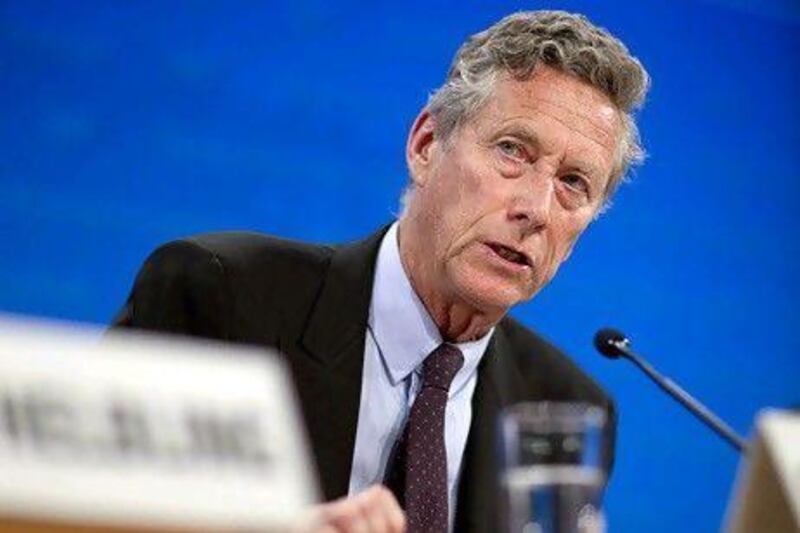The global financial crisis might last as long as 10 years from start to finish, the IMF has warned, meaning the most prolonged economic slump since the Great Depression is approaching only the midway point.
"It's not yet a lost decade... But it will surely take at least a decade from the beginning of the crisis for the world economy to get back to decent shape," said Olivier Blanchard, the fund's chief economist, in an interview published by the Hungarian edition of Portfolio magazine.
Mr Blanchard reiterated warnings on global growth in spite of commitments to support the financial system with unlimited fund injections by the US Federal Reserve and the European Central Bank last month.
But he added that the fact that "inflation is roughly stable" in the global economy thus far was "a puzzle" that the IMF was currently researching.
"I would have expected a large output gap to lead to more downward pressure on inflation than we have seen," he said.
Mr Blanchard did not pin a starting date on the potential decade of economic misery. However, the financial crisis is widely considered to have started on August 9 2007, when BNP Paribas froze three investment funds in the complex securities known as collateralised debt obligations and the Federal Reserve injected US$24 billion (Dh88.15bn) into the financial system.
Many more financial convulsions and capital injections were to come, as huge swaths of the banking sector were put on life support.
Fresh signs of gloom sprang up across the globe yesterday.
China's services industry grew at the slowest rate in more than a year, according to official purchasing managers' index (PMI) data released yesterday. The data from the Chinese government and logistics federation fell to 53.7 last month from 56.3 in August.
A PMI reading of more than 50 signals expansion; below 50 signals contraction.
Underlining the scale of the slackening in Asian economies, the Asian Development Bank released a report forecasting that Asia, excluding Japan, will grow 6.1 per cent this year, the slowest race since 2009.
Similar PMI data from the euro zone added to the downcast outlook for the global economy. The depth of the slowdown made it almost inevitable that the euro zone returned to recession in the third quarter, according to Markit, which compiled the data.
Markit's composite PMI reading for the currency bloc fell to 46.1 last month from 46.3 in August.
"Rather than clearing, the cloud of uncertainty hanging over business investment and spending got notably darker in September," said Chris Williamson, the chief economist at Markit. "There therefore seems little scope for a return to growth in the fourth quarter."
Mr Blanchard said that allowing for increased inflation was one factor that euro-zone countries should be prepared to accept in reducing public debt levels - dismissing German concerns that such actions could stir hyperinflation.
"For each country you have to find the right path of consolidation. At the same time, you have to do everything else you can to increase demand and maintain growth, from monetary accommodation, to bank recapitalisation, to structural reforms," he added.
Mr Blanchard's warnings came a day before the Bank of Japan downgraded its assessment of the country's economy and increased its bond-buying scheme by ¥80 trillion (Dh3.75 trillion).
Reflecting on the financial crisis as it enters its sixth year with scant sign of dissipating, Mr Blanchard said that the biggest challenge to have emerged was the degree to which complexity in the financial system had bloomed in the years leading up to the subprime crisis of 2007 and the crash of Lehman Brothers in 2008.
"Perhaps our main shortcoming was in our thinking about the financial sector. We had assumed that we could ignore much of the details of the financial sector, that we could ignore the plumbing," he said.
"We underestimated the complexity of the system and the fact that a financial shock could nearly destroy the economy."
[ tarnold@thenational.ae ]





